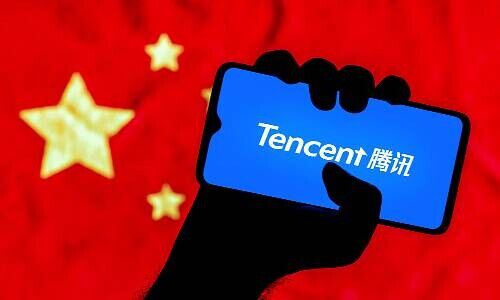UBS's $10 billion China Opportunity fund caught in the downdraft of the country's harsh tech crackdown.
It was only last April that Bin Shi gave a fireside chat on a UBS asset management hosted website. The bank's head of China equities appeared optimistic about the outlook for Chinese equities, saying it was likely the tech sector had «seen the worst in terms of anti-trust penalties».
As a result, he felt confident buying high-quality A-share titles listed in Shanghai and Shenzhen.
And when Shi talks, investors tend to listen - given he currently manages four different vehicles focusing on Chinese equities, the largest being the China Opportunity Fund.
Highly Rated
It is one of the most important equity funds at UBS. It has a highly successful track record, and assets under management were $14.4 billion at the end of 2020. Over the past five years, it posted an annualized return of more than 12 percent.
Until this year, Morningstar ranked it as a five-star fund while «Citywire» has long rated Shi highly.
What that means is that Shi gets talked about. In Switzerland, the fund seemed to attract new money almost by magnetic force, envious market competitors say.
Straight Down
But over the past few months that force has likely weakened significantly. Things have not turned out as Shi expected. A-shares continue to tank, as do Chinese securities listed overseas. In summer, the fund recorded double-digit declines and it lost a Morningstar star in July. As of right now, the fund is down almost 22 percent this year.
That means that it trails the MSCI China Index and many of its peer funds. It still managed $10.4 billion in assets in June with the first half report recording redemptions of about $3.8 billion, although that was still more than offset by inflows of $4.2 billion. But if you factor in market performance, the current shortfall is more likely to be about $1.2 billion.
That is more than likely to be a big hit for Shi. When asked by finews.com, UBS said that it takes the long-term view when it comes to identifying market prospects and it invests in companies with strong management and a long-term vision that allow them to ably manage geopolitical, regulatory and other external events.
«China is more volatile than other markets, and such an environment creates opportunities for active managers to create value,», a spokesperson said.
Splitting Ant
It appears that the fund bet billions of dollars on the Chinese companies bearing the brunt of the anti-cartel and regulatory crackdown. Its holdings of Tencent comprise 9.76 percent of the portfolio, Alibaba and other Jack Ma companies, including Ant, which is being split up, make up 5.74 percent. In comparison to peers, it appears to be overweight in financials.
In the meantime, the Chinese government seems to be ramping up scrutiny of the insurance sector. One of the largest insurers is Ping An, which is 5.29 percent of the portfolio. Authorities are also taking steps against video games, which is likely to impact major games producer Netease (4.97 percent of the portfolio).
Ample Warning
The brutal decline in Chinese equities has proven controversial, given that it has become mixed up in the U.S.-China trade war, the pandemic and violations of human rights in China. Market legend George Soros has called Blackrock's recent move into China a «tragic mistake». He warned that the world's largest asset manager was likely to lose money as a result, warning that the recent steps against the tech sector are a symbol that Chinese President Xi Jinping will do anything to remain in power.
One of the world's mostly closely watched investors, Cathie Woods, recently sold off a sizeable chunk of her funds holdings in China tech.
Long-term Debt
Blackrock and UBS have no choice but to grin and bear it. The Chinese investment market is a long-term gamble and one in which UBS managed to position itself before other competitors. UBS is also intent on making more investments there. That also holds for the funds business. It is expanding its palette of products and it is shortly expected to launch a new China Healthcare fund.
But if UBS China funds continue to bleed, that could change. It is mostly investors outside the mainland that have been burned by the tech crash and they make most of their money from them. And it is also the foreign investors who are currently driving the selling in Chinese equities, as «Bloomberg» (paywall) recently reported.
They seem to have had enough of the way Chinese authorities have been acting, which they see as unpredictable and overly draconian.


























